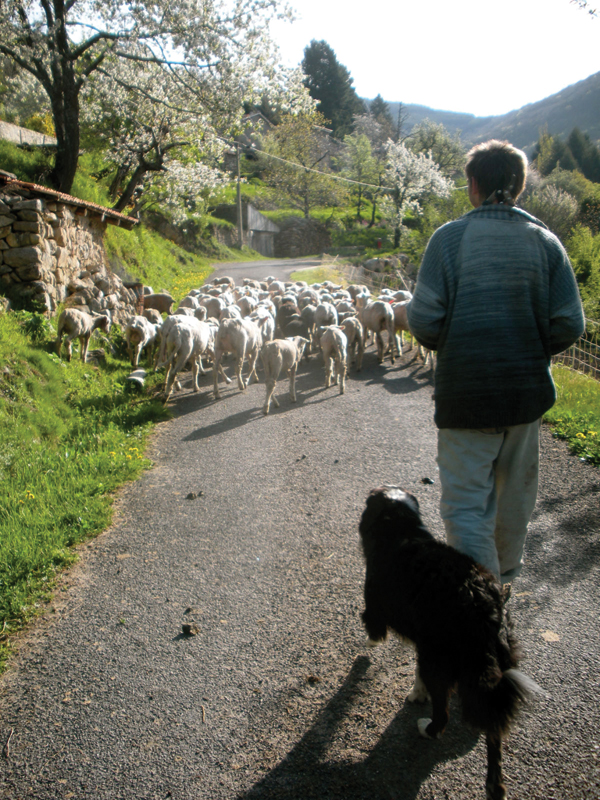Worldwide Opportunities on Organic Farms is an organization that aims to give volunteers experience in organic farming and to provide living space in a rural setting based on a host-volunteer relationship. Better known by its acronym WWOOF, the organization was created in 1971 in the United Kingdom as a way to connect volunteers to organic farms. In return for volunteer help, a WWOOF host farm offers food, accommodation, and opportunities to learn about organic lifestyle. Over its 40 year history, the organization has spread to over 50 countries.
Although “worldwide” as its title claims, WWOOF is well established in Vermont. The state currently has 50 registered farms through the organization, more than any other state in New England.
How it works:
According to its Website, a WWOOF member contacts the Host Farms to discuss hopes and expectations to form an agreeable arrangement. Once you become a WWOOFer by joining the organization (a $15 annual fee), you will receive online access to the Directory of Host Farms.
Next, contact the farms you are interested in visiting to check availability and arrange a stay. WWOOFers generally volunteer for half a day in exchange for meals, accommodation, and education. The length of a farm stay is determined by you and the host, and can vary from a few days to a season.
Eric Ziegelman, a UVM sophomore, was a WWOOFer in 2009-2010. Eric, a native Vermonter, partook in the program in France and can attest to the organization as a whole.
“I was looking for the most economic way to live and learn after high school.”
When asked about beginning the process, Ziegelman gave praise to the organization’s efficiency.
“You email a particular farm you are interested in working on and you hope for a good response. It’s very relaxed and simple. You coordinate and they bring you in.”
Agriculture largely shapes Vermont’s identity. But farming can be portrayed as exhausting and often unappealing. WWOOF offers a different perspective on the world of farming by connecting hosts and volunteers who are passionate about agriculture and lifestyle.
“WWOOFing is very unique because it doesn’t deal with an exchange of currency,” says Ziegelman. There is no money incentive. It’s purely based on the WWOOFer’s willingness to learn. It can be hard, but it’s a personal challenge and obstacle that you can overcome. You’re not in it for the profit; you’re in it for your personal experiences and benefits.”
WWOOF does not require any particular level of experience. The organization’s only “requirements” are to have “a genuine interest in learning about organic growing, country living, or ecologically sound lifestyles, and to help their hosts with daily tasks for an agreed number of hours.” So volunteers are not restricted by education or work experience.
Who can be a WWOOFer?
All ages are welcome to become members of WWOOF. Generally, the organization encourages those who are 18 or older to participate. This is why many college-bound students find WWOOF a temporary, yet engaging opportunity after high school.
“If you’re not completely set on some path, and are a little uncertain, this is a perfect time to slow everything down, lengthen the days, introspect a lot more, and become an observer of your own life and life itself,” says Ziegelman.
“The best part is that if you don’t feel you’re ready for a new chapter in your life such as college or such a graduate school, WWOOFing is a great way to boost your confidence level.”
Post-graduates may also find the organization appealing. With a degree in environmental studies, biology, or other relevant coursework, WWOOFing can provide a great opportunity to volunteer and test personal knowledge in a small and relevant environment by applying previous studies to real-life experiences.
Why WWOOF?
Living and volunteering on an organic farm may seem rigorous. Without pay, some may see it as a waste of time. But rewards are not always given in the form of money. Rather personal experience, skills, and knowledge are but a few qualities that a WWOOFer will gain as a volunteer.
“You learn to get out of your comfort zone. You enhance your communication skills, learn to work on team, boost your confidence, and create open-mindedness for yourself. WWOOF has so many hidden gems under the surface, all of which contain so much value if uncovered.”
“These are all skills that can be applied to the business world and the rest of your life,” says Ziegelman.
Opportunities in Vermont:
An advantage of participating in Vermont’s WWOOF network is the amount of farms the state contains. Vermont has a total of 50 WWOOF host farms, all of which offer their own exclusive volunteer opportunities. It is appropriate that our state has such an abundance of WWOOF farms, as agriculture is a large part of Vermont’s identity. This helps showcase Vermont’s status as a forerunner in agricultural development.
Another advantage Vermont offers is the WWOOF farms’ proximity to one another. As part of the organization, WWOOFers may choose to move from farm to farm. Because of the Vermont’s geography, this makes it easy for WWOOFers to move around the state when looking to change host farms. These close quarters allow WWOOFers access to plenty of volunteer opportunities.
If you’re looking for a different lifestyle, new experiences, or to acquire new skills, WWOOFing in Vermont may be the right choice for you.
For a complete list of Vermont’s WWOOF organic farms see:
www.wwoofusa.org/Farms and search “Vermont.”
by Matt Sulva

